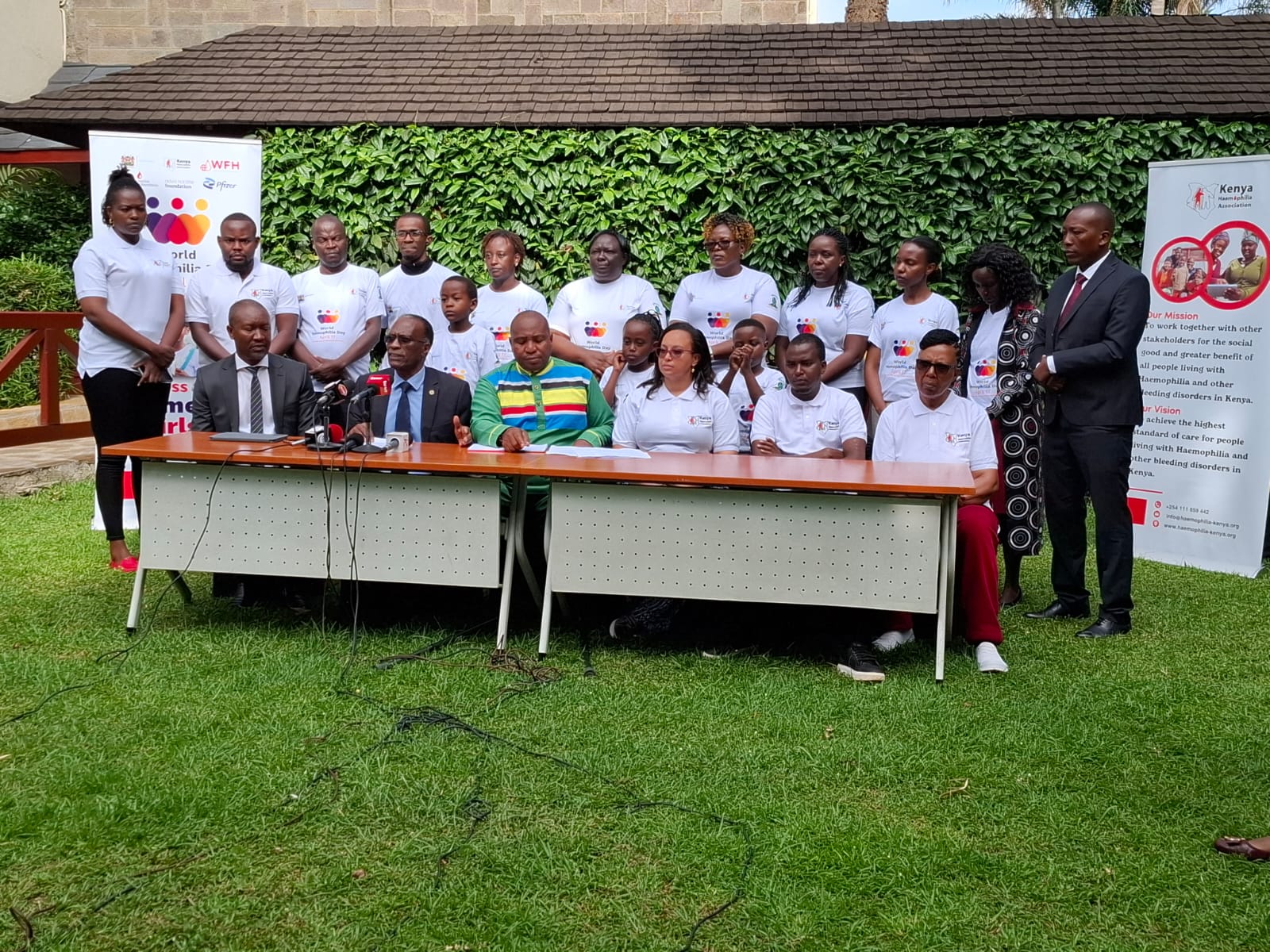 Members of the Kenya Haemophilia Association (KHA) during their press conference in Nairobi on April 17, 2025. Photo/ Elisha Singira.
Members of the Kenya Haemophilia Association (KHA) during their press conference in Nairobi on April 17, 2025. Photo/ Elisha Singira.
The Kenya Haemophilia Association (KHA) has called on the government to honor the agreement made to patients with the condition.
The board of the association said no more lives should be lost to the condition, which is treatable, but not curable.
They spoke at a press briefing in Nairobi under the global theme ‘Access for all, Women and Girls bleed too’.
Haemophilia is a medical condition in which the ability of the blood to clot is severely reduced, causing the sufferer to bleed severely from even a slight injury.
The leadership of KHA implored the
government to implement the supplementary budget that was unanimously passed in
Parliament in 2019.
They said public petition number 60, which included inclusion of haemophilia patients into the national health insurance fund, government procurement of clotting factor concentrates and recognition of person with haemophilia as persons with disabilities, was adopted and the funds requested were approved, but never disbursed. This has led to the death of some patients due to inability to afford the clotting factor concentrates required, they said.
Speaking at the briefing, Prof Karanja
Njoroge, the chairman of the Kenya Haemophilia Association, acknowledged the
problems the association has encountered in dealing with the bleeding disorder
among Hemophilia patients.
He said: “Kenyan institutions have not been adequately equipped to manage haemophilia. The association has been able to advance the care of the haemophilia patients in more than 25 hospitals across the country for the last few years. We have established haemophilia clinics where patients can be able to come and get the care they need.”
He added: “Despite all this, we are calling the nation to action because with the capacity we have, we are not able to get to everyone on our own which has led to the death of children from Haemophilia. This should be done through allocating sustainable funding for consistent national supply of clotting factor concentrates.”
Christopher Poisikir, a patient of haemophilia
type A severe, from Narok County, shared the experience he has had over the
years.
He said: “Haemophilia is a long story and I am here to represent all the patients who have been identified to have the condition in Kenya. There are many more out there who have not been identified because of the many reasons earlier mentioned by the leaders. It is indeed expensive to access the clotting factor concentrates which calls for collaboration and funding from the government to cushion the patents from dying out of something that can be managed. I plead with the government to honor the agreement made in the year 2019 for us to be sure we have a life a head.”
David Ole Sankok, East African Legislative Assembly MP and the patron of the KHA, reiterated the need for the government to adhere to the petition passed in parliament to give haemophilia patients a dignified life where they will be able to access treatment and care any time.
He said: “It is important to note that we have been preaching Universal Health Coverage (UHC), which is supposed to cover everyone including Haemophilia patients. The concept should be an all-inclusive idea including Haemophilia patients. How comes we are receiving funding from donors outside Kenya when our own government does not. This is unacceptable because the donor fund will soon stop and the patients will not be able to survive.”





![[PHOTOS] How Ruto was received in China](/_next/image?url=https%3A%2F%2Fcdn.radioafrica.digital%2Fimage%2F2025%2F04%2Ff567f368-47e4-4dc8-b04d-d034d30fb71a.jpeg&w=3840&q=100)

